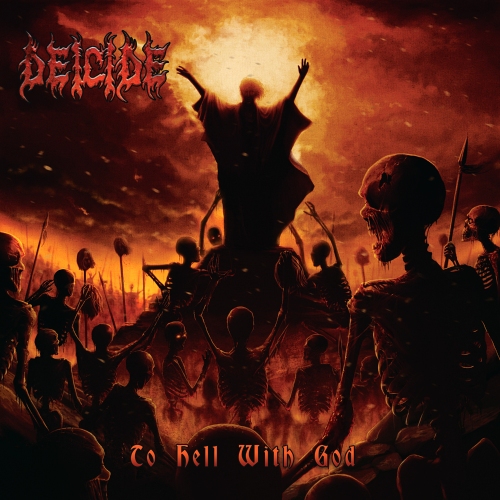‘Tis the season for year-end lists of what everyone and their dog thinks are the best albums of the past year, as well as the incredibly pretentious and elitist mindsets that come with them. I’m not going to pretend I know what’s best for anyone, but I do know that there are definitely albums I enjoyed much more than others, despite some critical flaws in some of them. My tastes can be a bit whacky at times, but I’m pretty sure that there are at least a few people out there who will be curious to know what my favorites are, so I will be sharing them.
But not here.
Instead, I’ll be doing a series of posts over at Under The Gun Review that will double as a countdown to when we’re free of the holiday hell that is the month of December.
Because they’re happening one at a time, I’ll be posting the list as it goes live day by day over at UTG in list form here.
#25: RIITTIIR by Enslaved (read it)
#24: Results by Murder Construct (read it)
#23: Awakened by As I Lay Dying (read it)
#22: Ex Lives by Every Time I Die (read it)
#21: Failed States by Propagandhi (read it)
#20: Eremita by Ihsahn (read it)
#19: Dead End Kings by Katatonia (read it)
#18: Les Voyages De L’Âme by Alcest (read it)
#17: Autotheism by The Faceless (read it)
#16: All Hail The Void by Enabler (read it)
#15: Legend by Witchcraft (read it)
#14: Death Is The Only Mortal by The Acacia Strain (read it)
#13: No Matter Where It Ends by Black Sheep Wall (read it)
#12: Book Burner by Pig Destroyer (read it)
#11: Parallax II: Future Sequence by Between The Buried And Me (read it)
#10: Monolith Of Inhumanity by Cattle Decapitation (read it)
#9: Incongruous by Beneath The Massacre (read it)
#8: All We Love We Leave Behind by Converge (read it)
#7: CVI by Royal Thunder (read it)
#6: Danza IIII: The Alpha – The Omega by The Tony Danza Tapdance Extravaganza (read it)
#5: Hasta La Muerte by Xibalba (read it)
#4: A Flash Flood Of Color by Enter Shikari (read it)
#3: Yellow & Green by Baroness (read it)
#2: Koloss by Meshuggah (read it)
#1: L’Enfant Sauvage by Gojira (read it)







